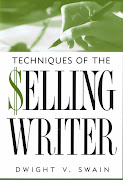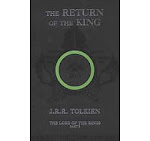Current Reading: Myths of the North American Indians, by Lewis Spence... and also a couple of other books that are NOT non-fiction treatises written at the turn of the last century in which overblown language (from a modern sensibility) and inherent cultural prejudice are on full display. Fortunately.Inspirational Quote: "When a man is wrapped up in himself he makes a pretty small package" -- John Ruskin That's it.
I've had it.
Listen to me, thou packagers of children's toys, for thou hast aroused the ire of cunning Ulysses who once did nasty things with a wooden horse (er... that didn't come out right). Listen as I wax full wroth! (And believe me, Wroth is not one who likes to be waxed, either).
Cassandra, as a 5-year-old girl with certain sensibilities, has a soft spot for dolls, ponies, stuffed animals and "-sets" (tea-sets, play-sets, picnic-sets, etc.-sets). Santa was quite kind to her this year, but it is obvious that he's pretty upset with the direction-challenged king of a small Achaean island because he's inflicted a devious kind of torture on me.
Toys come in cardboard boxes with nice plastic window-fronts that let perusers see the contents laid out in a way that is aesthetically pleasing, if not actually practical. Very pretty. Very appealing. And you get to see exactly what you're getting without all that mucking about looking at pictures on the box (although there are a lot of those too... mixed with some print on warranty and liability so fine that reading it would blind an eagle.
Once you open it, though, your appreciation for its presentation vanishes. Inside, things are laid out on a cardboard slide crimped and folded and secured with so much transparent tape that neither knife nor scissors will part it. I had to use a saw. A table saw, because I don't like doing things by half-measures.
Once you've extracted the slide, there are the plastic bubbles to remove*. These things are often layered so that, once you've removed one, you discover that the cups, plates and cutlery you were hoping to extract are actually still embedded in a second layer and can only be popped out by the application of manual force which, because the aforemention pieces are often more fragile than the packaging in which they arrived, runs about an even chance of reducing them to bits. We lost a plastic jockey that way. His plastic horse is still in mourning, won't eat any of his plastic food, and there are no instructions on how to notify the family... not even in the finest print.
But once the plastic bubbles are gone, the fun is only starting. Because one of Santa's elves seems to have a wire twist-tie fetish. They're everywhere. Two hundred of them are used to secure the average Bratz Kid to her packaging. They're wrapped around wrists and ankles and waists and necks and tangled in hair and tightened so much in these places that I keep getting the creepy feeling that bondage plays some part in package design. In fact, at one point, I had to open a dress in order to untangle things. I apologized to the doll in question, of course, but it still left me red-faced and unable to meet Penelope's gaze. To keep the ties from pulling through the cardboard, they are often slid through spacers, these little plastic tabs with holes in them that look like beams from a cheap Meccano(tm) set, and the wires are so crimped and tangled that pulling them out through the spacers is nearly impossible. In fact, these wires are not just twisted together in a sensible, civilized manner, they are wound tight enough to make an anal-retentive boy-scout proud, and then they are doubled over and twisted again. That they aren't actually knotted seems to be an oversight in the plan, but those responsible for the twist ties have done some miracles within that restriction.
And, of course, the twist-ties are held down with transparent packing tape. Yards of it. As if their contents were expected to struggle and free themselves. It's a disturbing image: millions of toys bound and helpless as they're distributed across the planet against their manufactured wills.
So: cardboard, tape, twist-ties... Ah, yes. That brings me to elastics. These aren't you're plain, honest, sensible office-style elastic bands. These are stealth bungies, transparent, nearly undetectable, and stretched so tight that (again!) mental images of unwilling bondage cannot be held at bay. It was one of these that cost our poor artificial jockey his abdomen. Penelope didn't see it, and figured it was only the encompassing plastic dome that was preventing her from freeing him. She yanked, and now he's no longer capable of mounting his horse. He needs a medical cart or travois capable of transporting the injured. No, he's no longer a jockey, but I did see him starring in a re-creation of the death of Qui-Gon Jinn from the Phantom Menace (Cassandra has diverse tastes. There is an insight to the schizophrenic zeitgeist (two German words in the same sentence! Is there a medal?) that can only be obtained by watching a little girl dressed in a princess dress with a magic wand in one hand and a light-saber in the other). He plays the part of Darth Maul post Obi-wan's revenge.
Elastic bands so thin and so small and so tight that it often looks as though the toys are held by force-fields. And untangling them is something that would bring tears to a sailor.
ENOUGH I SAY!
When the packaging requires more imagination to penetrate than the toy requires to enable play, it's time to stop. When more time is spent opening the box than is actually spent enjoying the contents, it's too much. When the total real-estate occupied by the box, it's full frontage, is FOUR THOUSAND TIMES greater than the surface area of the toy inside, it's time for an intervention.
So stop it. What I want is a box, a simple, six-sided carton of pressed boxboard within which the toys are seated securely using tissue-paper... or even allowed to rattle around since THEY OUGHT TO BE TOUGH ENOUGH TO SURVIVE SHIPPING IF THEY'RE GOING TO SURVIVE TEN MINUTES WITH A LITTLE GIRL WHO'S DEFINITION OF PLAY FREQUENTLY INCLUDES THE WORD "IMPACT."
Less packaging please. More recycle-friendly materials. Listen, or someday I swear you will wake up to find a large wooden horse drawn up outside your door, and THEN YOU'LL BE SORRY!
* Yes, I'm aware I could cut and tear, but I like to separate things for easy recycling... which brings me to my belief that packaging, when properly compressed, should not occupy several hundred times more volume than its contents.




